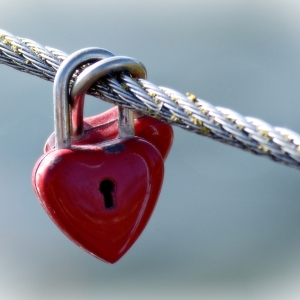
Silence: Do You Hear It?
(4 minute read)
“Only when you are silent, will you realize there is no silence.” – Jamie Cearley, PhD
I used to talk a lot. I would jabber about things that didn’t matter. Few people listened. Now that I am on the farm full time I spend most of my days alone, silent, but not in silence. No, far from silence, what I notice most is the intense banter of nature and humanity. They shout at me if I will just shut my mouth and listen with my whole being.
Luther Standing Bear of the Lakota has been credited with saying, “Silence was meaningful with the Lakota, and his granting a space of silence before talking was done in the practice of true politeness and regardful of the rule that thought comes before speech…and in the midst of sorrow, sickness, death or misfortune of any kind, and in the presence of the notable and great, silence was the mark of respect.” This tenet of good behavior was no doubt the reason for the white man characterizing him as a stoic; giving him the undue labels of dumb, stupid, and unfeeling.
We could use more meaningful silence in our culture. Since experiencing more silence I have been noticing there is an awful lot of noise in our lives. Even while pumping gas there is a TV screen blaring at me. Can’t I even pump gas in peace? Restaurants can be obnoxious too. I tried to take my mother out for a nice dinner recently. There were no less than 9 TV’s all on different channels in sight of our table. On top of this visual noise there was music playing. As if it couldn’t get less peaceful the servers broke into song and dance 3 times during our meal. So much for good food and conversation.
Kenny Chesney has a new song out entitled Noise. The lyrics speak of wanting to be heard above all the noise in our world; the phones, TV’s, radios and a host of other noise makers. Kenny is right on target with one exception; he claims we can’t turn it off. You can turn it off. Our culture would hear its citizens better if we turned off all the noise.
Here are 4 types of talk you might overhear if you turn off all the noise and listen:
- Natures chatter. The outdoors is anything but silent. Indeed, far more boisterous than my laboratory or office cubicle ever was. Yet, somehow the hustle and bustle of nature is far more soothing and serene in its ordered chaos than the mayhem of the work place. A pair of Red Tailed hawks screaming in their high pitched tone busy building a nest, ants communicating by laying intricate paths of pheromones, never making a sound, water droplets falling long after the rain has ended in an random chorus, these are the types of music nature plays day and night. Nature provides a never-ending song that somehow brings a feeling of peace and belonging.
- Body language. Have you ever tried hearing with your eyes? Horses by nature are non-vocal. This is true of prey animals in general. If you are on the menu, don’t announce your presence in the kitchen. To compensate, they are masters of body language. Flicking ears, giving “looks” in their never ending measure of each other’s leadership. Horses have some 17 discrete facial movements. Researchers have compiled these movements into facial expressions. Horses can also read human facial expressions. You might say body language is the universal language of life; birds fluttering away at the approach of a coyote, a crow dive bombing a raptor, or deer curled up in an open field, saying all is well. The body language of humans can be just as clear. “Hear” with your eyes the smiles, the outstretched arms, and the gaze of their eyes. If you listen you might hear faint screams. The wants and needs of others will become clear. Listen to the silent cries for help; the folded arms, the lack of eye contact, or the slouching shoulders. While scientist don’t agree on the exact number of facial expressions a human is capable of, most would say between 6 and 27. Whichever figure you accept there is a great deal to listen to.
- The consultation of yourself. If you are silent for long enough, you might even hear yourself. Perhaps the most difficult challenge for humankind is to see ourselves as we are. This may be in part because we never stop talking to ourselves and listen. To reflect inward requires silence.
- The wisdom of those older and more experienced. You cannot learn when you are talking. Listening to people who have navigated this world longer than you can help avoid a great deal of trouble and sorrow.
A simple, rich life is one with less noise. It demands silent time. A quiet time in which to examine and refocus priorities, to listen to others, and to take in the world around us. Teach yourself and others to savor silence. Yes, you can turn off all the noise making contraptions, close your mouths, and see what you can learn from listening in silence. Warning, silence is addicting. You’re going to love it.
“To enjoy silence, you must first be silent.” –Jamie Cearley, PhD
Like what you just read?
Subscribe to Simple living. Rich life.
or read more right now from the Archive.

